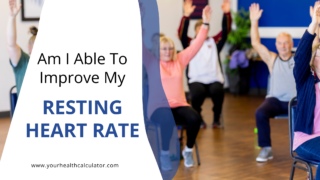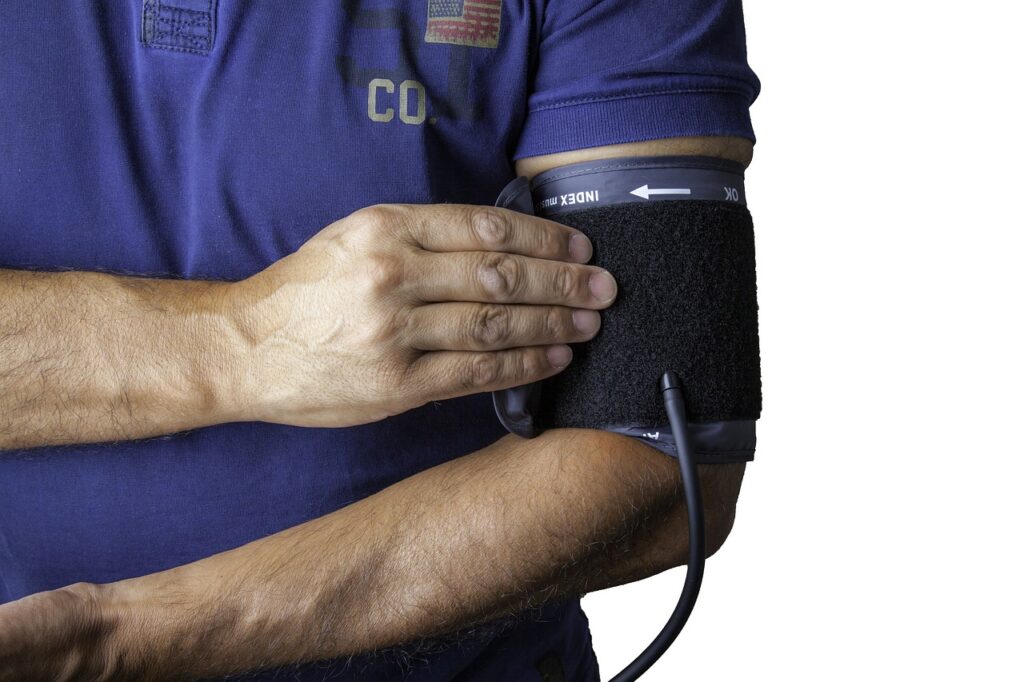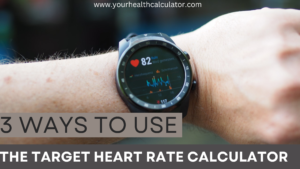Am I Able To Improve My Resting Heart Rate?

During exercise and different training modalities our initial aim is to stress our physical and mental capacities. Sticking with this over a period of time will lead to certain adaptations occurring, such as lowering your resting heart rate. Whether that be muscular strength, psychological resilience or cardiovascular; exercise is good for us. Just getting up and moving is so good for us.
There are many stresses in life that lead to an increase in blood pressure and a higher resting heart rate. Often, these are difficult to control. Whether financial security or job security; these are out of our hands. But other stresses can truly be helped through exercise. The old adage ‘exercise is medicine’ couldn’t be more true.
When we train and compete over a period of time what truly happens to our cardiovascular system? Does our resting heart rate actually lower? Find out more below in this blog post.

Page Contents
What Happens To My Heart Following A Training Plan?
Following any period of training or exercise your heart will adapt. There is not necessarily a time frame for which this will happen. However, by continual observation and reassessment you will be able to notice a difference. Knowing your target heart rate zone during training is key to help get adaptations.
Over the period of training, just like any muscle, your heart will get stronger. This leads to your heart becoming more efficient in pumping blood around the body so that the muscles get more oxygenated blood. An untrained heart works harder to get the blood around the body.
Heart Adaptations
- Decreased Resting Heart Rate
- Increased Stroke Volume
- Increased Cardiac Output
- Myocardium Hypertrophy
- Greater Capillarisation
What Does It Mean When My Resting Heart Rate Lowers?
Lowering your resting heart rate is a fantastic thing and shows that your heart muscle has become stronger. When our heart beats, the blood is being pumped around the body delivering oxygenated blood to our muscles. This also brings along a supply of nutrients to help with day to day processes within the body.
With everything, it is great to reassess at different stages of your training to see how much you are improving. Especially because this will change your target heart rate zone.
Lowering your resting heart rate means your heart is working less to get the blood around the body, is able to fill with more blood and is better suited to pumping blood around the body.
How Can I Reduce My Blood Pressure?
When we visit the doctors or hospital we often get our blood pressure taken. It is common to be told that you have high blood pressure, with pills the most common prescription given. However, there are several things that you can change with your lifestyle to try and lower your blood pressure naturally. In turn, this will reduce the risk of heart disease and improve overall heart health.
7 Tips To Lower Blood Pressure
- Try To Reduce Controllable Stress
- Regular Exercise
- Healthy Balanced Diet
- Reduce Sodium (salt) Intake
- Stop Smoking – Check out this calculator to see how this costs you!
- Reduce Alcohol Intake
- Get Good Sleep

What Should My Resting Heart Rate Be?
Your heart rate is measured in beats per minute (bpm). For a healthy adult you will find that your resting heart rate will sit anywhere between 60-100 bpm. The more you train/exercise your heart will get stronger and this will get lower. So for trained athletes it is not uncommon to see this around 35-60 bpm. Everyone is different and your resting heart rate can differ day to day.
How To Check Your Resting Heart Rate
Sit as still a possible for 5-10 minutes. This will bring your heart rate down to its resting rate. With your palm facing the sky, place the tip of your index and middle finger on the thumb side of the wrist (outside of the wrist). Hold this for 20 seconds and count how many beats. From there multiple this number by 3 to get your resting heart rate. Learn More.
What Is A Normal Resting Heart Rate By Age?
From a newborn baby to a person aged 10+ will have very different resting heart rates. The differing heart rates are due to certain differences such as; a developing heart, certain health conditions and heart abnormalities. A higher resting heart rate does not necessarily mean there is a problem with your heart. Instead, it can be an increased hormone level or an overactive thyroid. However, if your resting heart rate is very low and you suffer from bouts of dizziness or excessive fatigue; seek medical advice.
Resting Heart Rates By Age:
- Newborn 0-1 Months – 70-90 bpm
- 1-11 Months – 80-160 bpm
- 1-2 Years Old – 80-130 bpm
- 3-4 Years Old – 80-120 bpm
- 5-6 Years Old – 75-115 bpm
- 7-9 Years Old – 70-110 bpm
- 10+ Years Old – 60-100 bpm
- Well Trained Athlete – 35-55 bpm
Why Does Smoking Increase My Heart Rate?
There are many different substances in a cigarette. Nicotine, the addictive substance in the cigarettes, will increase your heart rate. Alongside this, carbon monoxide makes it harder for your blood to transfer oxygen around your body. This will also make your heart work harder, in turn increasing your heart rate. Smoking will be detrimental for your cardiovascular health.
The cost of smoking will also hit you hard. Find out how much smoking costs you.
Does Alcohol Use Affect My Resting Heart Rate?
Alcohol will affect the heart over a short term period and a long term period. In the short term, having an alcoholic drink will raise your heart rate and blood pressure. Once you have finished drinking this will reduce over time. However, long term binge drinking will affect your cardiovascular health. This will weaken the heart, increase resting heart rate, lead to higher blood pressure and there is a possibility of an irregular heartbeat.
Why not check out some of our other calculators whilst you are here.


